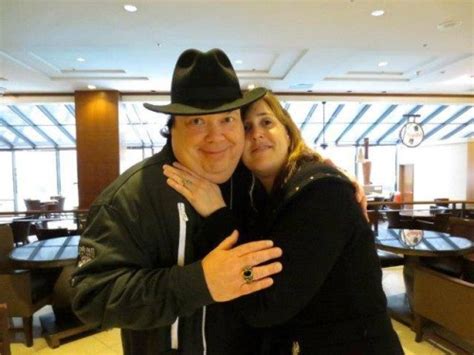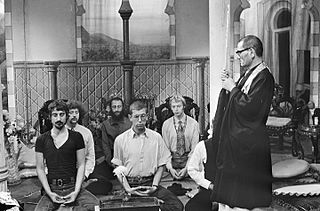A Quote by Alison Gopnik
Philosophers and psychologists have long puzzled over the question of how we know as much as we do despite our limited experiences. One way is to see how children learn. Another example is consciousness. The concept is usually explored by armchair academics. Looking at kids expands our conceptions of consciousness.
Related Quotes
Although you can find certain differences among the Buddhist philosophical schools about how the universe came into being, the basic common question addressed is how the two fundamental principles-external matter and internal mind or consciousness-although distinct, affect one another. External causes and conditions are responsible for certain of our experiences of happiness and suffering. Yet we find that it is principally our own feelings, our thoughts and our emotions, that really determine whether we are going to suffer or be happy.
One of the most difficult problems of our age is that leaders, and perhaps academics as well, cannot readily admit that things are out of control and that we do not know what to do. We have too much information, limited cognitive abilities to think in systemic terms and an unwillingness to appear to be in control and to have solutions for our problems. We are afraid that if we admit to our confusion, we will make our followers and students anxious and disillusioned. We know we must learn how to learn, but we are afraid to admit it.
My wife and I are just praying daily for our kids. We are trying to raise our kids to go all in for God. But I am keenly aware of this fact: If I hope to see my kids live an "all in" life for God, they must first see me doing it. My wife and I know that leading by example is going to be the loudest voice of influence in their lives. I've stopped trying to be a perfect parent, and instead I'm realizing that my kids aren't expecting me to be perfect, but they do need me to be present, focused on them, always making sure how much they know how much I love them and how much Jesus loves them.
I theorize that there is a spectrum of consciousness available to human beings. At one end is material consciousness. At the other end is what we call 'field' consciousness, where a person is at one with the universe, perceiving the universe. Just by looking at our planet on the way back, I saw or felt a field consciousness state.
The question of truth is really a question of memory, deep memory, for it deals with something prior to ourselves and can succeed in uniting us in a way that transcends our petty and limited individual consciousness. It is a question about the origin of all that is, in whose light we can glimpse the goal and thus the meaning of our common path.
Our role as gardeners is to choose, plant and tend the best seeds within the garden of our consciousness. Learning to look deeply at our consciousness is our greatest gift and our greatest need, for there lie the seeds of suffering and of love, the very roots of our being, of who we are. Mindfulness...is the guide and the practice by which we learn how to use the seeds of suffering to nourish the seeds of love.
How very paltry and limited the normal human intellect is, and how little lucidity there is in the human consciousness, may be judged from the fact that, despite the ephemeral brevity of human life, the uncertainty of our existence and the countless enigmas which press upon us from all sides, everyone does not continually and ceaselessly philosophize, but that only the rarest of exceptions do.
There can be no more intimate and elemental part of the individual than his or her own consciousness. At the deepest level, our consciousness is what we are - to the extent that if we are not sovereign over our own consciousness then we cannot in any meaningful sense be sovereign over anything else either.
I believe consciousness is non-local and a big part of what we experience with near death and past lives. It's the consciousness that has come into us from other experiences and our consciousness that we remain aware of when we leave our bodies and they communicate with us through dreams, and even through drawings which I do a lot of work with myself.
I consider morals and aesthetics one and the same, for they cover only one impulse, one drive inherent in our consciousness - to bring our life and all our actions into a satisfactory relationship with the events of the world as our consciousness wants it to be, in harmony with our life and according to the laws of consciousness itself.
In the realm of strong A.I. or in the realm of human consciousness, I think that it's been something that troubles humans or forces us to look at it over and over for millennia, or as long as we've really been conscious, because there is no answer. There is no explanation for us, even for a one percent grip to hold on to. So we just don't know why we're here, we don't know how consciousness is created.
In the field of consciousness research-and also in physics and astronomy-we are breaking past the cause-and-effect, mechanistic way of interpreting things. In the biological sciences, there is a vitalism coming in that goes much further toward positing a common universal consciousness of which our brain is simply an organ. Consciousness does not come from the brain. The brain is an organ of consciousness. It focuses consciousness and pulls it in and directs it through a time and space field. But the antecedent of that is the universal consciousness of which we are all just a part.
Behavior influences consciousness. Right behavior means right consciousness. Our attitude here and now influences the entire environment: our words, actions, ways of holding and moving ourselves, they all influence what happens around us and inside us. The actions of every instant, every day, must be right...Every gesture is important. How we eat, how we put on our clothes, how we wash ourselves, how we go to the toilet, how we put our things away, how we act with other people, family, wife, work - how we are: totally, in every single gesture.
I don't know what happens to our consciousness when we're unwound," says Connor. "I don't even know when that consciousness starts. But I do know this." He pauses to make sure all of them are listening. "We have a right to our lives!" The kids go wild. "We have a right to choose what happens to our bodies!" The cheers reach fever pitch. "We deserve a world where both those things are possible— and it's our job to help make that world.






































